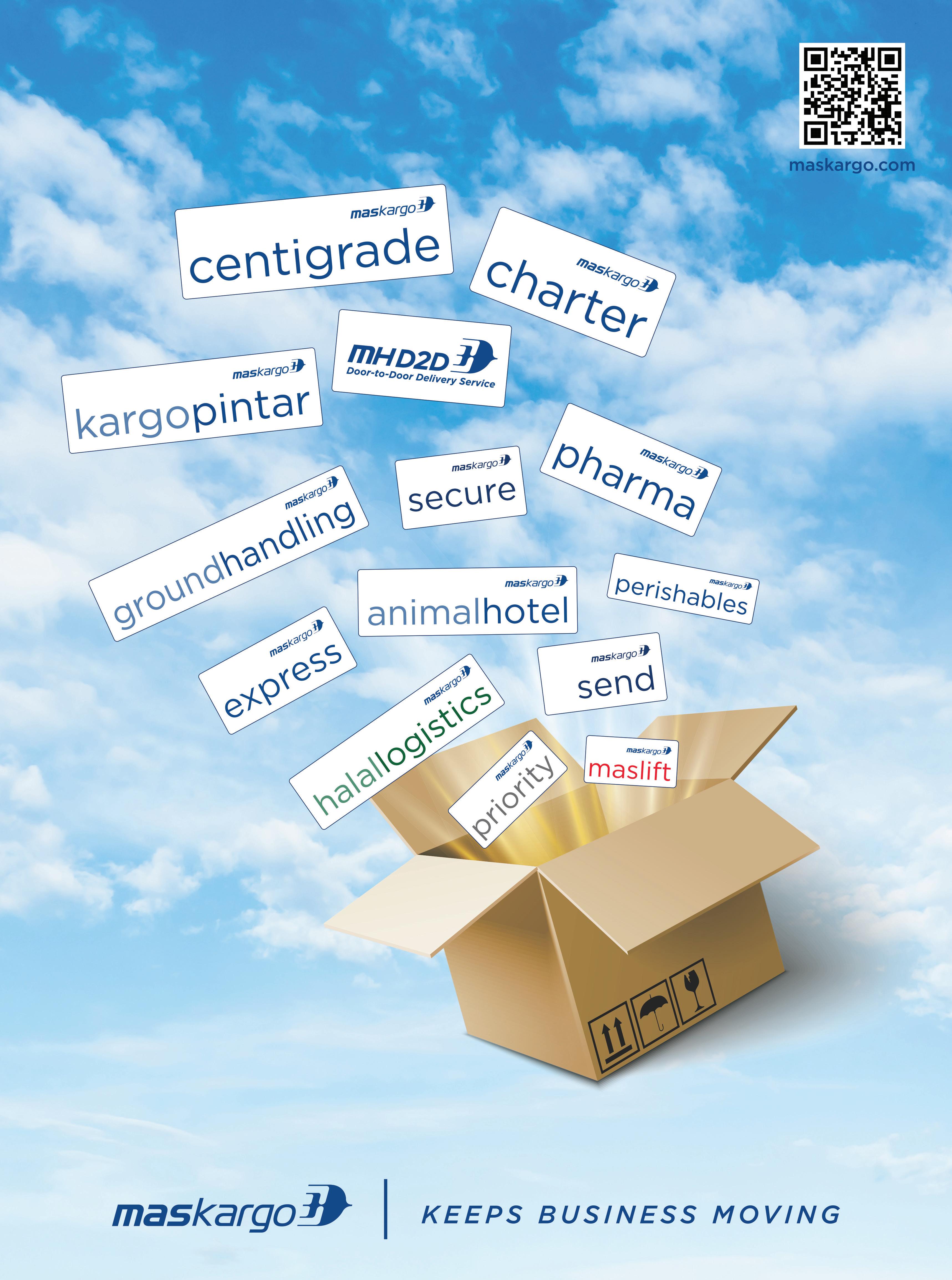
3 minute read
HONG KONG KEEPS ITS CARGO CROWN
Long the world’s busiest air cargo airport, Hong Kong International Airport (HKIA) has solidified its position with strategic initiatives. HKIA has consistently maintained its position despite the challenges posed by the Covid-19 pandemic and throughout the past three years, HKIA has demonstrated resilience, ensuring stable cargo throughput. In a remarkable achievement, HKIA was once again named the World’s Busiest Cargo Airport in 2022 by Airports Council International (ACI) AsiaPacific, having successfully handled an impressive throughput of 4.2 million tonnes.
To meet the long-term air traffic demand of the city, HKIA is currently in the process of developing a state-of-the-art Three-runway System (3RS). With the implementation of the 3RS, HKIA will significantly expand its capacity, enabling the handling of a remarkable 10 million tonnes of cargo annually. To fortify HKIA’s position as the world’s premier cargo airport, the Airport Authority Hong Kong (AAHK) has implemented a multi-faceted strategy.
Advertisement
Expanding capacity
Anticipating the exponential growth of e-commerce and express air cargo services, HKIA’s cargo community has proactively expanded its capacity to seize these lucrative opportunities. A joint venture led by Cainiao Network, the logistics arm of Alibaba Group in Mainland China, has developed a premium logistics centre that will commence operations this year. Spanning an impressive floor area of 380,000 sq m, this cutting-edge facility will be equipped with state-of-the-art robotics and advanced technology, serving as Alibaba’s smart hub in Asia. Additionally, DHL’s Central Asia Hub at HKIA has completed its expansion in 2023, effectively increasing its annual handling capacity by 50% to over one million tonnes. Furthermore, the construction of the Transit Mail Centre is underway, aimed at enhancing the airport’s capacity for handling transit mail from Mainland China en route to global destinations. This ambitious project is targeted for completion by 2025.
Temperature-controlled lead
Recognising the growing demand for temperature-controlled airfreight, AAHK has seized new opportunities and developed globally recognised capacity to handle cargo that requires special treatment. HKIA stands as the first airport in the world to receive all three of the International Air Transport Association’s (IATA) CEIV certifications for Fresh, Pharma, and Live Animals, earning the distinguished title of Partner Airport. These certifications validate HKIA’s exceptional capabilities in the transportation and handling of temperature-sensitive goods, including fresh produce, pharmaceutical products and live animals, all performed to globally assured standards.
Boasting world-class cold-chain facilities, including approximately 7,000 sq m of dedicated cold room storage and the largest fleet of cool dollies among Asia’s airports, HKIA leads the way in providing superior temperature-controlled handling. Moreover, all three cargo terminals at HKIA have received the IATA CEIV Li-battery certification for handling special cargo.
Embracing digitalisation
HKIA recognises that digitalisation is pivotal to enhancing its cargo operations to achieve sustained excellence. As a forward-thinking leader,
HKIA has spearheaded the development of the HKIA Cargo Data Platform, a cutting-edge digital platform for the Hong Kong air cargo industry. This innovative platform connects key stakeholders such as cargo terminal operators, freight forwarders, truckers, warehouse operators, and regulators, fostering seamless communication and paperless operations through a synchronised trusted network built on blockchain and other smart technologies. The processed data from this platform yields valuable intelligence, enabling a more resilient and sustainable cargo supply chain.
A vital manufacturing hub
HKIA has set out to solidify its role as the Greater Bay Area’s International Cargo Gateway, currently handling an impressive 75% of international air cargo from the Greater Bay Area (GBA).
As one of the world’s most critical manufacturing hubs, particularly in the electronic and high-technology product sectors, the GBA plays an integral role in HKIA’s growth and strategic positioning. To further enhance its role as a double gateway connecting the GBA with the global market, HKIA is actively developing a novel sea-air intermodal cargo transshipment initiative.
This initiative includes the establishment of the HKIA Logistics Park in Dongguan, a regional transport hub in the GBA, and a new airside intermodal cargo pier at HKIA. By completing cargo security screening, palletisation and airline acceptance upstream, this initiative enables efficient air transshipments.
Similarly, international shipments can be smoothly imported to Mainland China through HKIA and the logistics park, adhering to Hong Kong’s air cargo regulations. The pilot scheme is currently operating smoothly, with AAHK targeting the completion of permanent facilities by 2025.
Alternative smoking products
The recently passed Import and Export (Amendment) Bill 2023 by HKSAR’s Legislative Council on June 21, 2023, marks a significant milestone. This bill permits the sea-air and land-air transshipments of alternative smoking products from Mainland China via HKIA to overseas destinations. This legislative development provides substantial support to the recovery and future growth of the air cargo industry.
Building a resilient airport community
AAHK diligently monitors the manpower situation at HKIA, actively supporting the airport community in staff recruitment through various channels in Hong Kong.
Embracing autonomous technology, AAHK has deployed autonomous tractors and autonomous staff shuttles on the apron, alongside introducing a digital apron management system, among other initiatives. These advancements reduce reliance on labour and enhance operational efficiency.
Furthermore, the HKSAR Government recently unveiled a new labour importation scheme, prioritising the employment of local workers while allowing the importation of frontline operational workers for the aviation industry. AAHK welcomes this scheme and pledges to collaborate with the HKSAR Government and the aviation industry to facilitate employer applications and coordinate cross-border transport arrangements for imported labour, as necessary.







